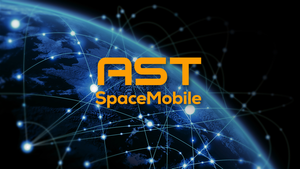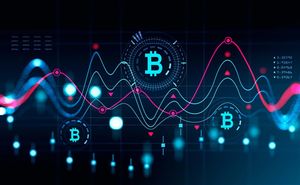Financial News
The AI Arms Race Intensifies: GPT-5 vs. Gemini 2.5 Pro Set to Redefine Intelligence

The artificial intelligence landscape is on the cusp of a monumental shift, as the tech world eagerly anticipates the arrival of OpenAI's GPT-5, poised to challenge Google's (NASDAQ: GOOGL) formidable Gemini 2.5 Pro. This escalating rivalry is not merely a battle for market dominance but a race to redefine the very essence of AI capabilities, promising unprecedented advancements in multimodal understanding, reasoning, and autonomous functionality. The implications for public companies, technological innovation, and the global economy are profound, signaling a new era where AI agents could seamlessly integrate into daily operations, transforming industries from healthcare to finance.
The immediate implication of this intense competition is an accelerated pace of innovation. Both OpenAI, backed by Microsoft (NASDAQ: MSFT), and Google are pouring vast resources into developing models that can not only understand and generate human-like text but also interpret images, audio, and video with remarkable accuracy. This push towards truly multimodal and highly intelligent AI systems will undoubtedly lead to a wave of new applications and services, creating significant opportunities for early adopters and disruptors alike, while posing challenges for those slow to adapt.
The AI Titans Clash: A Deep Dive into Capabilities and Competitive Edge
The core of this burgeoning rivalry lies in the advanced capabilities each model brings to the table. Google's Gemini 2.5 Pro, currently available, has already set a high bar with its native multimodal understanding, processing text, audio, images, and video, including entire code repositories. Its standout feature is an impressive 1-million-token context window, with a 2-million-token capacity on the horizon, allowing it to analyze vast datasets and extensive documents, such as PDFs up to 750,000 words. Gemini 2.5 Pro is purpose-built as a "thinking model," excelling in advanced reasoning and leading in key math and science benchmarks like GPQA and AIME 2025. Its deep integration within the Google ecosystem, including Google AI Studio, the Gemini app for Gemini Advanced users, and upcoming availability in Vertex AI, provides a robust platform for developers and users, allowing seamless linking into Google Docs or Drive and default web browsing for current data.
OpenAI's GPT-5, expected to launch in July or August 2025, is anticipated to be a generational leap, with CEO Sam Altman hinting it will make GPT-4 seem like a "pocket calculator next to a quantum computer." GPT-5 is projected to be OpenAI's first truly "everything-to-everything" model, seamlessly integrating and understanding real-time audio, high-fidelity image recognition and generation, and video understanding, potentially even video generation. A major focus for GPT-5 is significantly enhanced reasoning, aiming to shorten reasoning traces while improving quality, indicating a greater ability to "think on its own." Early reports suggest a "gpt-5-reasoning" model outperforms existing proprietary models like Claude 4 Opus and Gemini 2.5 Pro Thinking in lateral reasoning benchmarks, with expectations to achieve intelligence comparable to a PhD expert. Perhaps the most transformative aspect of GPT-5 is its design for autonomous AI agents, capable of handling multi-step workflows with minimal human guidance, and its focus on drastically reducing hallucinations, aiming for accuracy below 15% from GPT-3's ~30%, a concept akin to a "Universal Verifier."
The timeline of events leading up to this moment has been a rapid acceleration of AI development. Google's release of Gemini 2.5 Pro showcased its commitment to multimodal and high-context AI, while OpenAI's consistent advancements with the GPT series have built immense anticipation for its next iteration. Key players involved are, of course, OpenAI and its primary investor Microsoft (NASDAQ: MSFT), and Google (NASDAQ: GOOGL) through its DeepMind and Google AI divisions. Initial market reactions have been a mix of excitement and strategic positioning, with tech companies and investors closely watching for any competitive advantage that could reshape the industry.
The Shifting Sands: Winners and Losers in the AI Arena
The intense competition between GPT-5 and Gemini 2.5 Pro will undoubtedly create clear winners and losers across the technology and broader business landscape. The most immediate beneficiaries will be consumers and businesses that gain access to more powerful, reliable, and versatile AI tools. Companies that can effectively integrate these advanced models into their operations, such as those in software development, content creation, data analysis, and customer service, stand to gain significant efficiencies and unlock new revenue streams. For instance, software companies leveraging GPT-5's autonomous agent capabilities could automate complex coding tasks, while media companies using Gemini 2.5 Pro's multimodal understanding could revolutionize content generation and analysis.
Microsoft (NASDAQ: MSFT), as a major investor in OpenAI, is positioned to be a significant winner if GPT-5 lives up to its hype. Its Azure cloud platform would become the preferred infrastructure for deploying and scaling GPT-5-powered applications, further solidifying its position in the enterprise AI market. Similarly, Alphabet (NASDAQ: GOOGL), the parent company of Google, stands to benefit immensely from the widespread adoption of Gemini 2.5 Pro. Its deep integration with Google Cloud, Workspace, and search services provides a powerful ecosystem advantage, potentially driving increased usage and subscription revenue. Both tech giants are vying for the developer mindshare, and the model that offers superior performance, ease of use, and cost-effectiveness will attract a larger ecosystem of third-party applications and services.
Conversely, companies that fail to adapt or invest in AI could find themselves at a significant disadvantage. Traditional businesses relying on manual processes or outdated technologies may struggle to compete with AI-powered rivals that can operate with greater speed, efficiency, and insight. Furthermore, smaller AI startups that cannot compete with the vast resources and research capabilities of OpenAI and Google might find it challenging to differentiate their offerings, potentially becoming acquisition targets or facing obsolescence. The "losers" could also include certain job roles that are highly susceptible to automation by advanced AI agents, necessitating a societal focus on reskilling and upskilling the workforce. The financial markets will closely scrutinize the adoption rates and performance benchmarks of both models, with stock prices of associated companies likely reacting to perceived competitive advantages.
Industry Impact and Broader Implications: A New Era of Intelligence
This AI arms race between OpenAI and Google is not an isolated event but a central force driving broader industry trends. It signifies an accelerated shift towards multimodal AI, where models can seamlessly process and understand information across various formats—text, image, audio, and video. This capability is crucial for developing more human-like and versatile AI applications, moving beyond single-modality limitations. Furthermore, the emphasis on advanced reasoning capabilities and the reduction of hallucinations points to a future where AI systems are not just powerful but also highly reliable and trustworthy, a critical factor for adoption in sensitive sectors like finance, healthcare, and legal services.
The emergence of autonomous AI agents, particularly highlighted by GPT-5's expected breakthroughs, represents a profound ripple effect. These agents, capable of handling multi-step workflows with minimal human guidance, could revolutionize business processes, leading to unprecedented levels of automation and efficiency. This will impact not only direct competitors like Anthropic and Meta (NASDAQ: META), who are also investing heavily in large language models, but also a vast array of software and service providers who will need to integrate or compete with these agentic capabilities. Partnerships will become crucial, as companies seek to leverage the strengths of these foundational models to build specialized AI solutions.
From a regulatory and policy perspective, the rapid advancements raise significant questions. Governments worldwide are grappling with issues such as ethical AI development, data privacy, intellectual property rights, and the potential for job displacement. The increased power and autonomy of these models will necessitate robust regulatory frameworks to ensure responsible deployment and mitigate potential risks. Historically, similar technological leaps, such as the advent of the internet or mobile computing, have led to significant societal and economic restructuring. The current AI revolution, driven by the likes of GPT-5 and Gemini 2.5 Pro, is poised to have an even more transformative impact, potentially reshaping labor markets, educational systems, and even geopolitical power dynamics. The competition also underscores the importance of open-source AI initiatives versus proprietary models, influencing the accessibility and democratization of advanced AI technologies.
What Comes Next: The Future Unfolds
The immediate future of the AI landscape will be characterized by intense competition and rapid iteration. In the short term, the market will closely watch the actual performance and real-world applications of GPT-5 upon its release, comparing its capabilities directly against Gemini 2.5 Pro. This will likely lead to a flurry of benchmarks, reviews, and developer adoption trends. Companies will need to make strategic pivots, deciding which foundational model best suits their needs for integration and development. This period will also see a surge in AI-powered product development, as businesses race to leverage these advanced models to create innovative solutions across various sectors, from personalized education to advanced scientific research.
Looking further ahead, the long-term possibilities are nothing short of transformative. The continued advancements in reasoning and autonomous agents could bring us closer to Artificial General Intelligence (AGI), an AI capable of understanding, learning, and applying intelligence across a wide range of tasks at a human level or beyond. This would unlock unprecedented market opportunities in areas currently unimaginable, while also posing significant challenges related to societal adaptation and control. Strategic alliances and partnerships between AI developers and industry-specific companies will become increasingly vital to unlock the full potential of these technologies.
Potential scenarios include a future where AI agents become ubiquitous, seamlessly managing complex tasks in business and personal life, leading to a significant boost in productivity and innovation. However, challenges such as ensuring AI safety, preventing misuse, and addressing potential job displacement will remain paramount. The market will likely see increased investment in AI infrastructure, specialized hardware, and talent development to support the growing demand for these sophisticated models. The competitive landscape may also evolve, with other major tech players and well-funded startups continuing to emerge, pushing the boundaries even further.
Conclusion: A Defining Moment in the Age of AI
The ongoing rivalry between OpenAI's anticipated GPT-5 and Google's (NASDAQ: GOOGL) current Gemini 2.5 Pro marks a defining moment in the age of artificial intelligence. This is not merely a technological arms race but a fundamental shift in how we interact with and leverage intelligent systems. Both models are pushing the boundaries of multimodal understanding, advanced reasoning, and autonomous capabilities, promising a future where AI is more integrated, intuitive, and powerful than ever before.
The key takeaways from this unfolding narrative are clear: the pace of AI innovation is accelerating, driven by fierce competition between tech giants like Microsoft (NASDAQ: MSFT)-backed OpenAI and Google. This competition is leading to breakthroughs in areas critical for real-world application, such as reducing hallucinations and enabling complex multi-step automation through AI agents. For the market moving forward, this means continued disruption and immense opportunities. Industries will be reshaped, new business models will emerge, and the demand for AI-literate talent will soar.
Investors should closely watch several key indicators in the coming months. These include the performance benchmarks and real-world efficacy of GPT-5 upon its release, comparing it directly to Gemini 2.5 Pro. Developer adoption rates for both platforms will be crucial, as a thriving ecosystem of third-party applications will determine long-term success. Furthermore, monitoring new use cases and industry-specific applications will provide insights into the most lucrative market opportunities. Finally, regulatory developments and policy discussions around AI ethics, data governance, and societal impact will be critical factors influencing the trajectory and responsible deployment of these transformative technologies. The AI revolution is not just coming; it is here, and its future will be shaped by the innovations emerging from this intense and groundbreaking competition.
More News
View More





Quotes delayed at least 20 minutes.
By accessing this page, you agree to the following
Privacy Policy and Terms Of Service.



